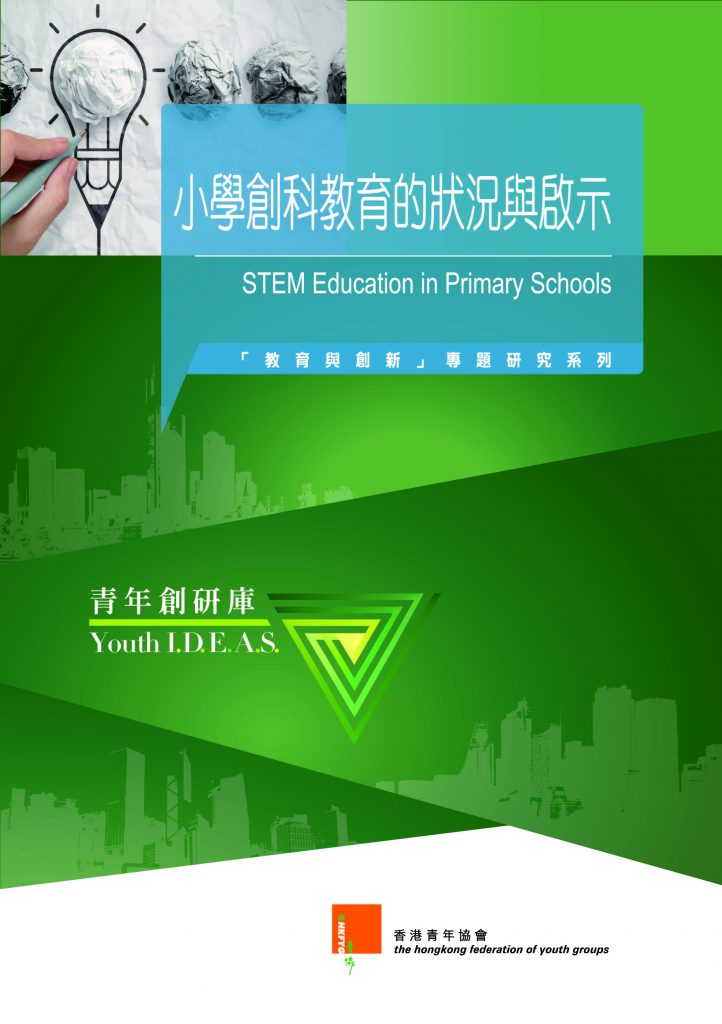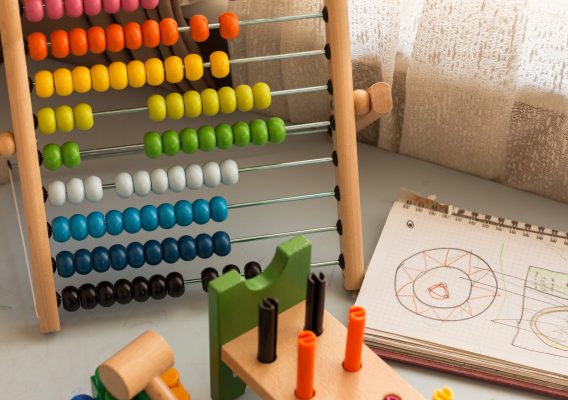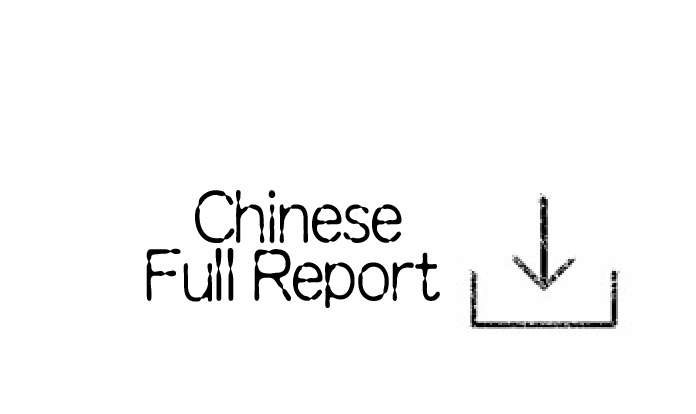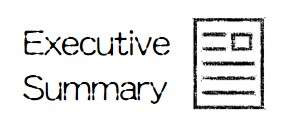STEM Education in Primary Schools
Youth I.D.E.A.S. 20
Education and Innovation
STEM Education in Primary Schools
28 March, 2017
 Innovation and technology are increasingly important and bring challenges to economic development around the world. Various countries enthusiastically promote science, technology, engineering and mathematics (STEM) education to incubate talent and enhance international competitiveness.
Innovation and technology are increasingly important and bring challenges to economic development around the world. Various countries enthusiastically promote science, technology, engineering and mathematics (STEM) education to incubate talent and enhance international competitiveness.
The Trends in International Mathematics and Science Study (TIMSS) in 2015 showed that the science performance of primary school students in Hong Kong ranked 5th worldwide, lagging slightly behind Asian competitors Singapore and Korea. The Programme for International Student Assessment (PISA) also found that the science performance of secondary school students in Hong Kong ranked 2nd worldwide in 2012 but had dropped to 9th in 2015. However, the 2016 Global Competitiveness Report indicated that the competitiveness of Hong Kong’s technological infrastructure dropped from 1st in the whole world in 2012 and 2013 to 14th in 2016. It also showed that from 2012 to 2016 Hong Kong scored only 4.4 out of 7.0 in innovation competitiveness.
The above-mentioned figures have given rise to concern about STEM development in Hong Kong. The government of the Hong Kong Special Administrative Region promised, in its 2015 and 2016 policy addresses, to work on STEM education and to encourage students to build diverse STEM-related capabilities. The project has some shortcomings, however. Some primary schools have encountered time, labour and subvention shortages that greatly hinder progress in promoting STEM education.
The earlier children receive STEM education, the more they can learn to improve their capabilities. Therefore, this study aims to explore senior primary school students’ and teachers’ perception of STEM education, and provides recommendations by examining the obstacles to implementation that primary schools currently face.
Discussion
- The value of STEM education in primary school must be affirmed. It helps strengthen related knowledge, interest and capabilities of children.
- There is a structural problem with teachers’ qualifications which must be solved. Teachers have an important role in encouraging students’ interest in STEM-related subjects. The Education Bureau and universities must reform the problem of teacher qualifications.
- There are difficulties obstructing implementation which must be overcome. Primary schools encounter obstacles like having insufficient subventions, class time and teachers. Schools could promote sustainable STEM education if the government provided the resources needed.
- Students need time and space to learn, to cultivate their knowledge of and interest in science and mathematics. Schools might consider alleviating their assignment burden and giving them time to explore relevant knowledge.
- HK society gives less attention to innovation and technology. Laymen do not fully understand or support STEM education. The relevant bureau might actively develop innovation and technology and create jobs to arouse public awareness.
Recommendation
- Introduce a scholarship scheme to reward undergraduates who study STEM-related subjects and want to be primary school teachers. This would encourage talented young people to develop STEM education at the primary level.
- Extend the scope of the existing paid non-local study leave scheme for secondary school teachers to include primary school teachers. This would enrich their pedagogy and give them on-site experiential learning in other countries.
- Create an online STEM forum. Discussions between school teachers, parents or other stakeholders may increase transparency regarding fees, quality and service details of STEM-related learning activities.
- Increase cooperation between parents, schools and professional organisations, and encourage them to establish an STEM learning community. This would raise parents’ and wider public awareness of STEM’s importance.
- Encourage the use of social media like teleconferences and provide training to primary school teachers. They could thus utilise this technology to exchange on pedagogy with teachers from renowned STEM schools around the world.




